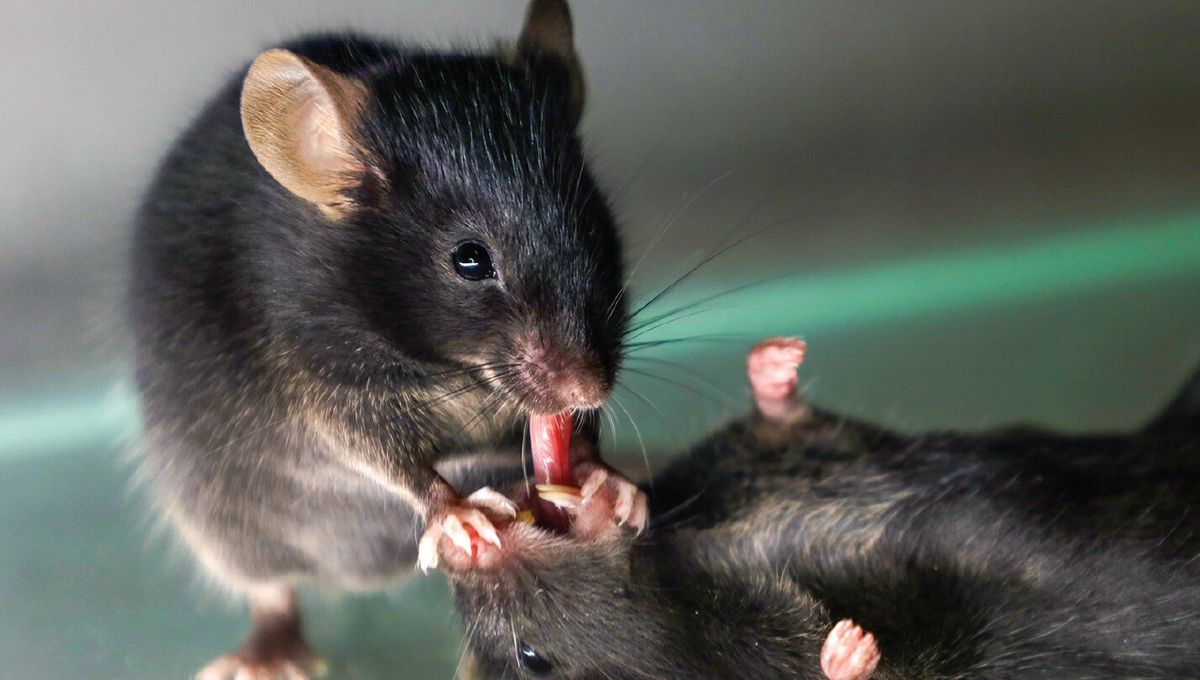
In some wholesome news, some mice seemingly attempt to revive their unconscious peers in an act that could be interpreted as akin to human “first aid”. The rodents were found to paw at, bite, and pull the tongues of their comatose conspecifics – and the researchers were even able to identify distinct brain regions that are crucial for this instinctive behavior.
ADVERTISEMENT GO AD FREE
The findings hint that an animalistic impulse to help others in distress may be more common than previously thought. There is anecdotal evidence of such caregiving behavior – including touching, grooming, nudging, and sometimes striking – throughout the animal kingdom. It’s been identified in elephants, chimps, and dolphins, for example.
While these actions are reminiscent of human responses in similar emergency situations, it’s proven difficult to determine their true nature in animals or to work out how common they are and what mechanisms may underpin them.
In the new study, researchers used laboratory mice to address these questions, presenting them with anesthetized and unresponsive individuals and filming their responses.
When the mice encountered a familiar partner in a state of unconsciousness, they displayed very distinct behaviors toward them. This generally escalated from more gentle actions like sniffing and grooming to more forceful behaviors such as biting the other mouse or pulling its tongue out.
These actions were rarely seen when the partner was active or sleeping, ceased once they regained activity, and tended to be more overt when the two mice were familiar with one another.
During 13-minute interactions, the mice spent over 47 percent of their time, on average, interacting with their unresponsive counterparts. In contrast, just 5.8 percent of their time was dedicated to active partners.
ADVERTISEMENT GO AD FREE
Actions directed toward the mouth or tongue were observed in all cases, and 50 percent of the time the mice were able to successfully pull out the tongue of their unresponsive partner – as if to prevent obstruction of the airways. In one test, which involved a foreign object being placed in the unconscious animal’s mouth, the “caregiving” mice successfully removed the object 80 percent of the time.
What’s more, it seems these efforts worked. The mice that had been fussed over woke up and regained the ability to walk faster than those that hadn’t, the team found.
“The consequences – including clearance of foreign objects from the mouth, improved airway opening, and hastened recovery – suggest reviving-like efforts,” the team write in their study.
Similar results are reported in an accompanying paper, as well as in a third study last month.
ADVERTISEMENT GO AD FREE
The researchers were even able to pinpoint the driving force behind this behavior, identifying oxytocin-releasing neurons in the amygdala and hypothalamus that trigger it.
It would be easy to anthropomorphize here and label the rodent resuscitation attempts “CPR”, but it’s important not to get carried away in ascribing intention to animals. That said, it’s still a fascinating glimpse into animal behavior.
“Our findings […] suggest that animals exhibit reviving-like emergency responses and that assisting unresponsive group members may be an innate behavior widely present among social animals,” the researchers conclude. “Such behavior likely plays a role in enhancing group cohesion and survival,” they add.
The study is published in the journal Science.
Source Link: Rodent Resuscitation? Watch Mice Attempt To Revive Their Unconscious Mates